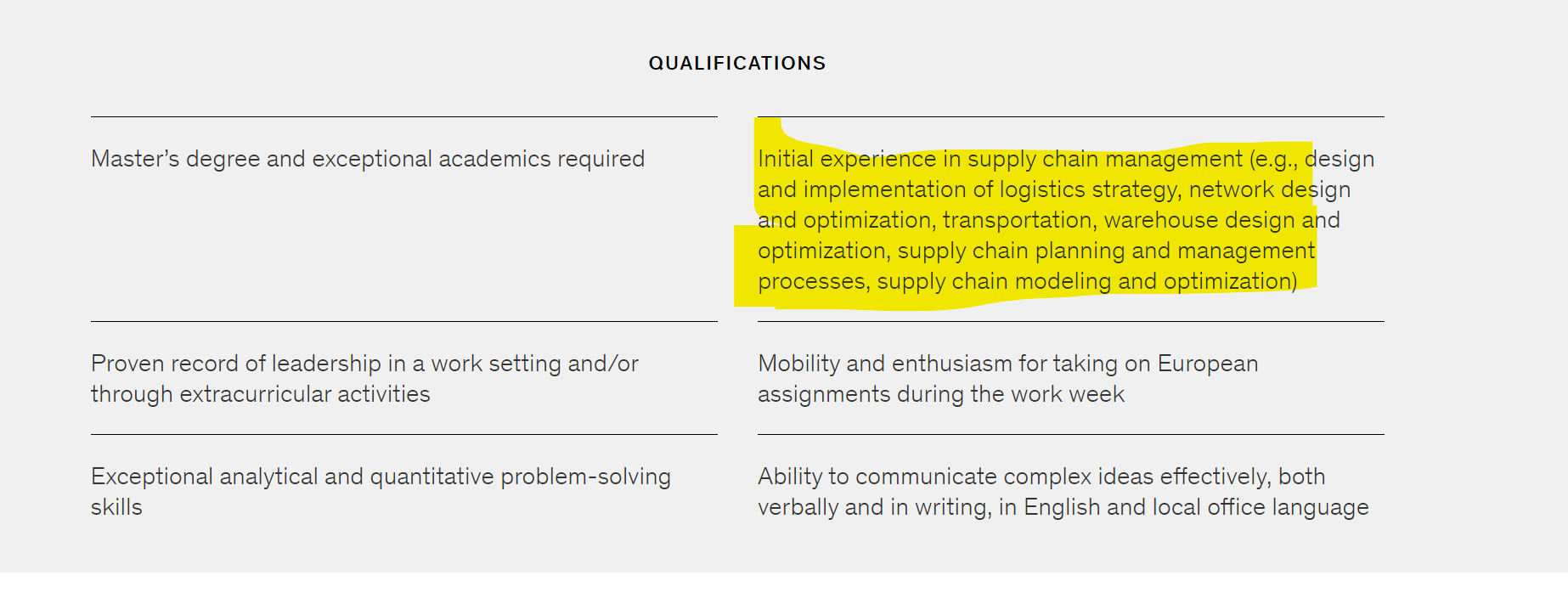Hi everyone,
I have the first round interview coming up for the junior supply chain management consulting position (OEP) in Mckinsey.
Does anyone know how much knowledge I am expected to have about supply chain management/operations topics and if I will be tested on it. Also do you know where I can find realistic Mckinsey type cases to practice on?
Thanks a lot!!













